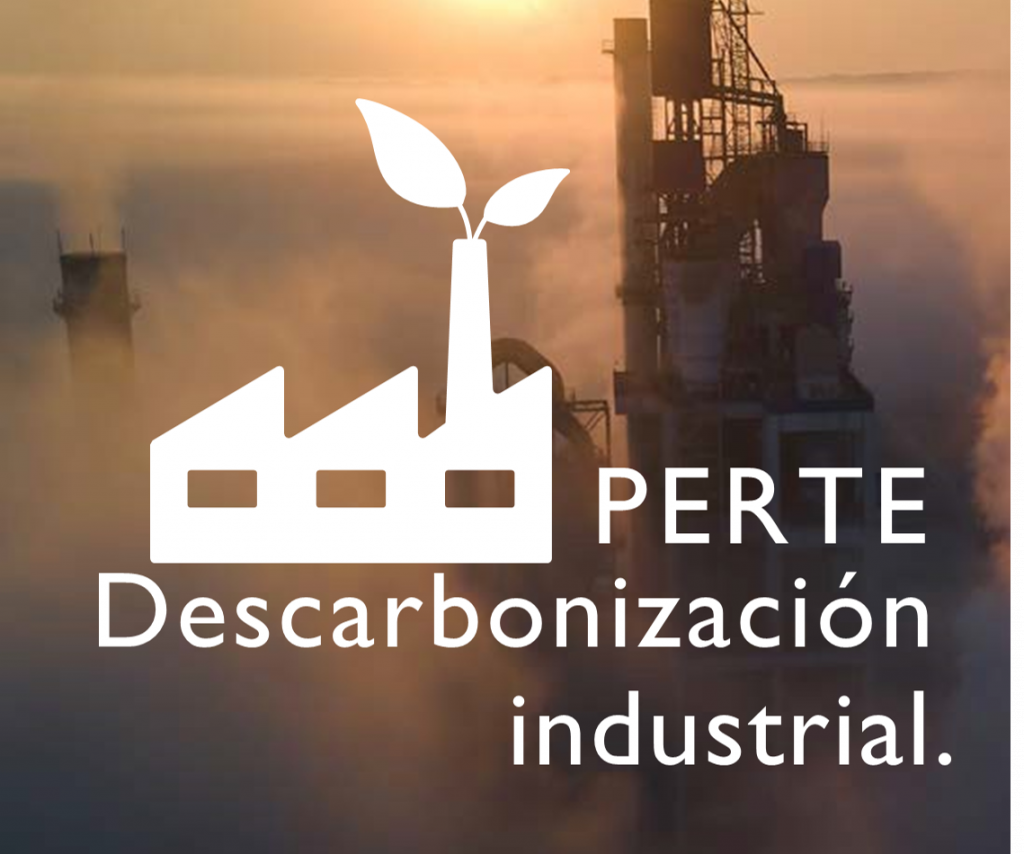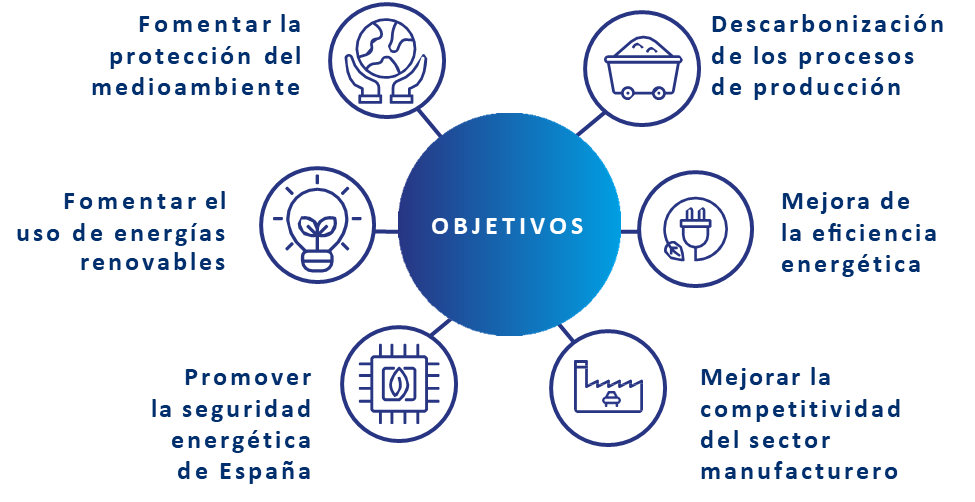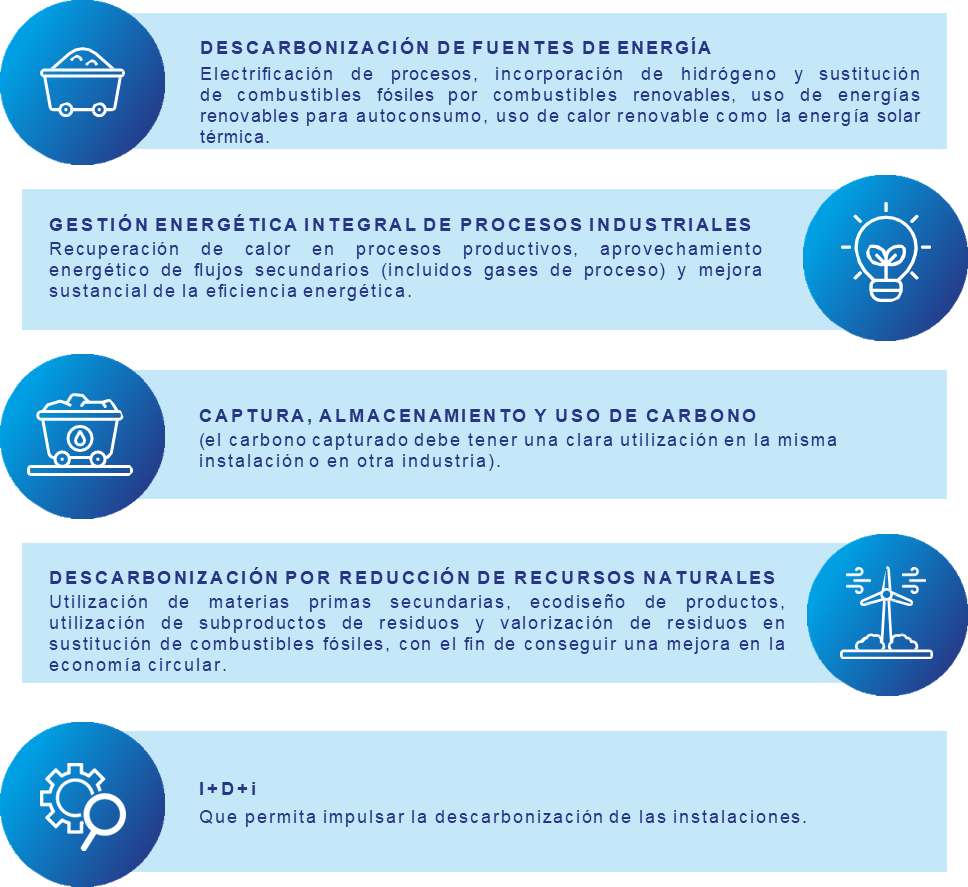
The Spanish government has launched the Strategic Program for Economic Recovery and Transformation(PERTE) for Industrial Decarbonization, as part of its Recovery, Transformation and Resilience Plan. The main objective of this program is to facilitate the transition to a more sustainable and efficient industrial model, in line with the country’s environmental commitments.
Its main objectives are industrial decarbonization, as well as energy efficiency, through aid and subsidies for sustainability in industry. Specifically, the Industrial Decarbonization PERTE provides for €800m of decarbonization subsidies until 2026.
How does Giconmes help in industrial sustainability?
In this sense, Giconmes is an ally in industrial decarbonization. We manufacture electric steam boilers designed to electrify industrial heating processes that until now have been carried out with natural gas boilers. More information can be found below:
- Electric steam boilers up to 180kW
- Containerized systems up to 2MW
- High voltage Power to Heat boilers
- Electric boilers of the HGV range up to 5.5MW
Objectives of the Industrial Decarbonization PERTE
- Decarbonization of production processes
The manufacturing sector will increasingly face legal restrictions on the emission of greenhouse gases or atmospheric pollutants, and a foreseeable increase in the price of emission allowances for all those sectors that are in the ETS. The main objective of the PERTE Decarbonization is to
emissions, allowing the viability of industries in the medium and long term, improving air quality and people’s health. - Improving energy efficiency and industrial sustainability
Industry is an energy-intensive sector, and actions aimed at improving energy efficiency are essential to help decarbonization and the viability of the manufacturing sector by incorporating the best available technologies and implementing energy management systems. - Improving the competitiveness of the manufacturing sector
It is essential to maintain the contribution of the manufacturing sector to the Spanish economy in the long term. The manufacturing industry will have to cope with a
emissions reduction challenge and, in order to remain competitive, it will be essential to support investments in decarbonization, which will also favor
improvement of air quality. It will also be necessary to support manufacturing companies in developing the technology needed to achieve this decarbonization through R&D&I. - Promoting Spain’s energy security
As one of the key levers of decarbonization, this PERTE will contribute substantially to reducing the consumption of natural gas by industry. The industry
manufacturing industry is responsible for 30% of natural gas consumption in Spain (59% if electricity generation is excluded), so the decrease in natural gas consumption in this sector could be due to a reduction in
consumption will be fundamental to guarantee Spain’s energy security, which has proven to be critical in the current context. - Promote the use of renewable energies
It is necessary to increase the weight of renewable energies in industrial processes. This will make it possible to reduce emissions while helping to reduce dependence on fossil fuels. - Promoting environmental protection
PERTE Industrial Decarbonization also aims to facilitate an integrated approach to the life cycle of products. Therefore, this PERTE supports the
utilization of by-products and waste recovery for integration into other processes to reduce the environmental impact of products throughout the life cycle.
of its life cycle. In addition, the actions financed will have a positive impact on other environmental problems, especially industrial pollution, and will contribute favorably to the circular economy. - Creation of high value-added employment
This PERTE is intended to serve as a lever for the education and training of workers in the industrial sector. In this way, the decarbonization of the
The industry will be accompanied by increased training of professionals who will have to develop the skills to be able to implement the least developed technologies.
contaminants.

Who is the industrial electrification plan aimed at?
The beneficiaries of this sustainability support are the sectors of the manufacturing industry, among which the following sectors stand out manufacturing of non-metallic mineral products (including ceramics, cement, glass, among others), chemical industry, petroleum refining, metallurgy, and pulp and paper manufacturing. In addition to these, there are large combustion plants in other sectors, with particular relevance to the food and beverage industry. The planned actions will be executed between 2023 and 2026, although the projects could be completed at a later date.
Scope of action of the industrial PERTE
Integral action aid line for the decarbonization of manufacturing industry of the manufacturing industry
Support will be given to tractor projects integrated by primary projects of those companies whose objective is the decarbonization of the industry, that is, the reduction of GHG emissions, measured in tons of CO2 equivalent (tCO2e).

More information
Executive summary (PDF). Ministry of Industry, Commerce and Tourism
Descriptive report (PDF). Ministry of Industry, Commerce and Tourism